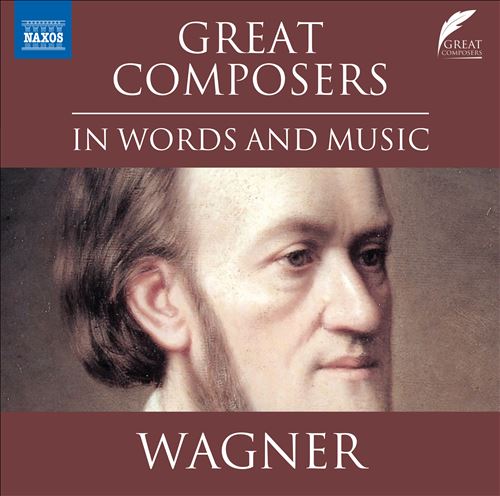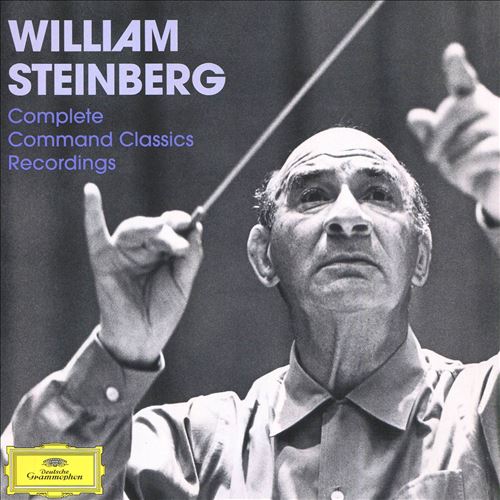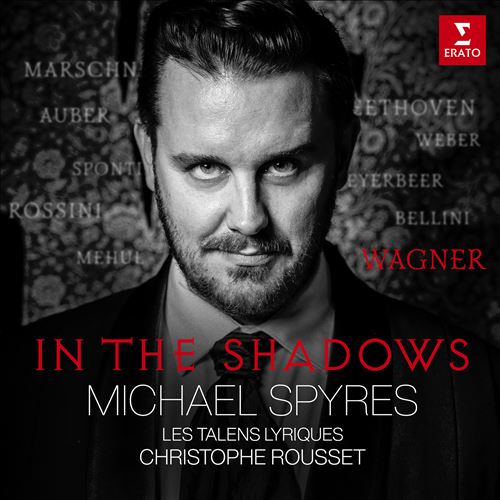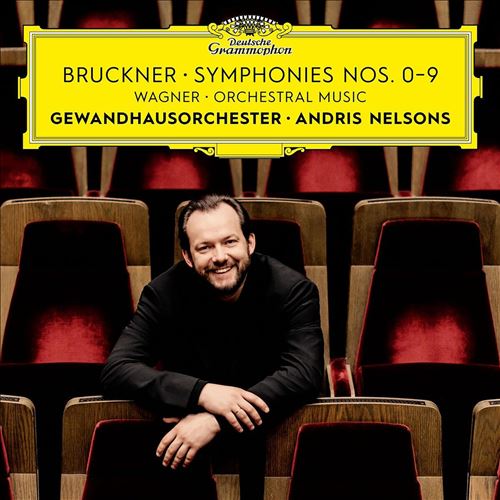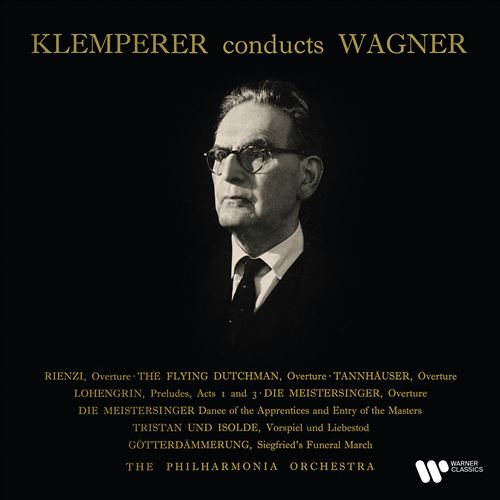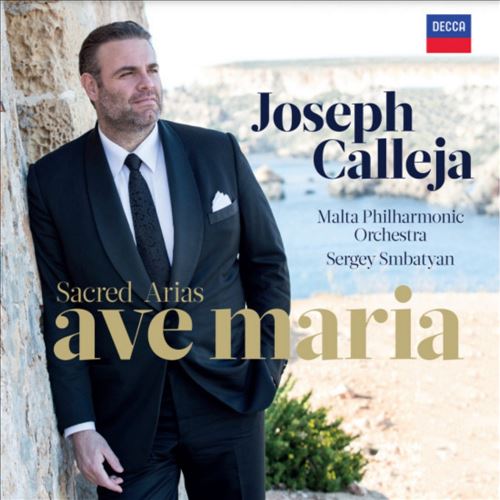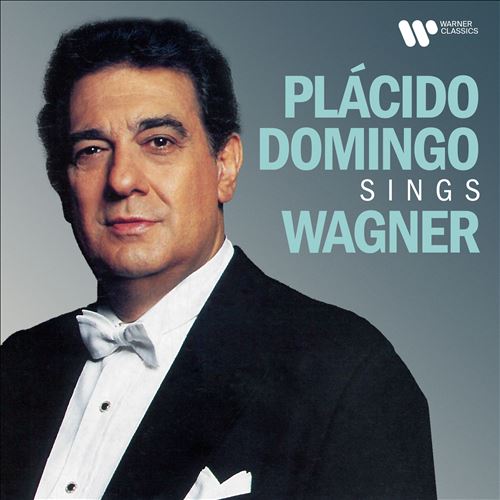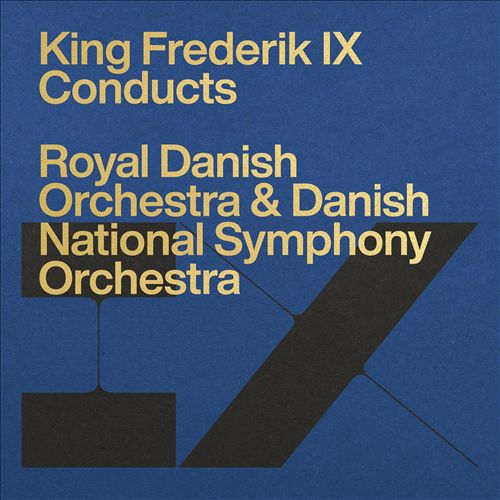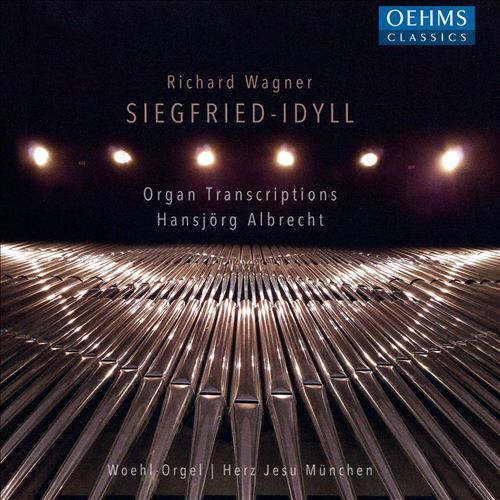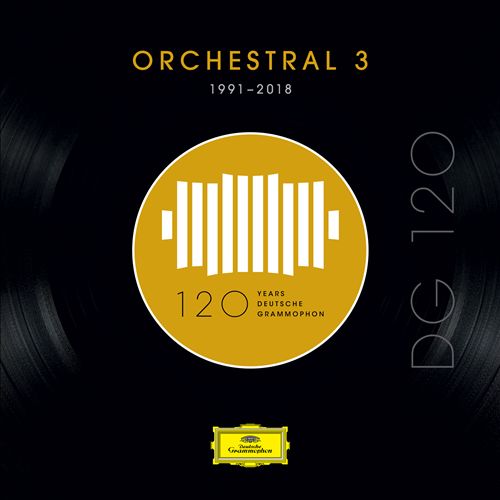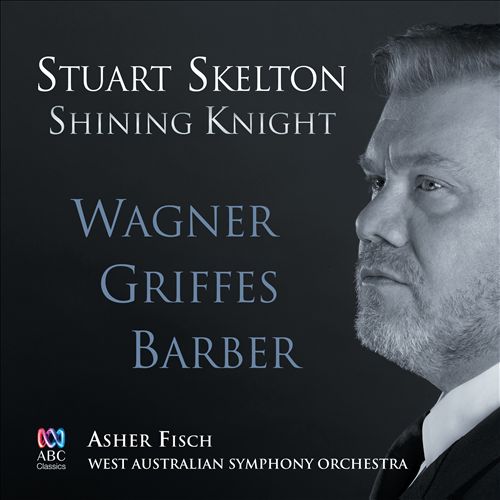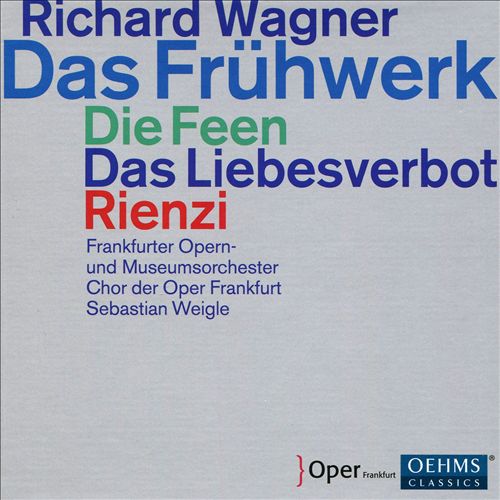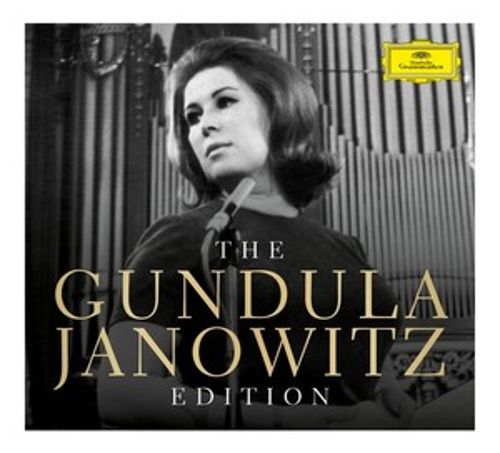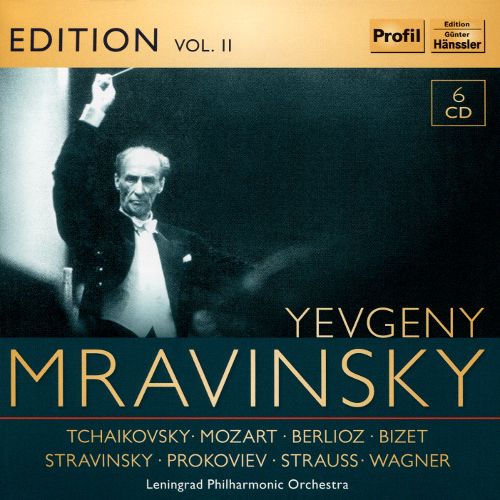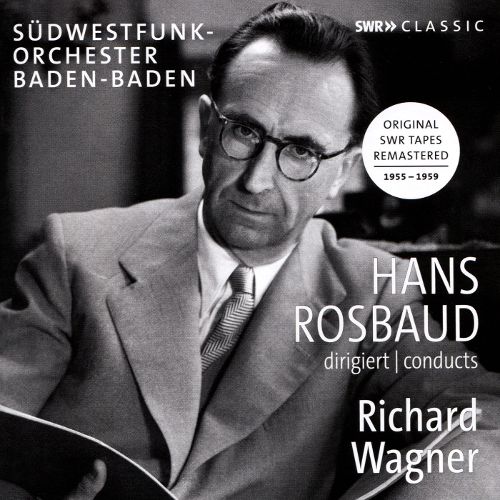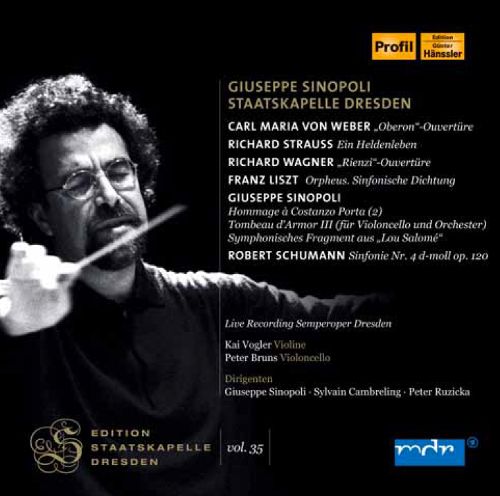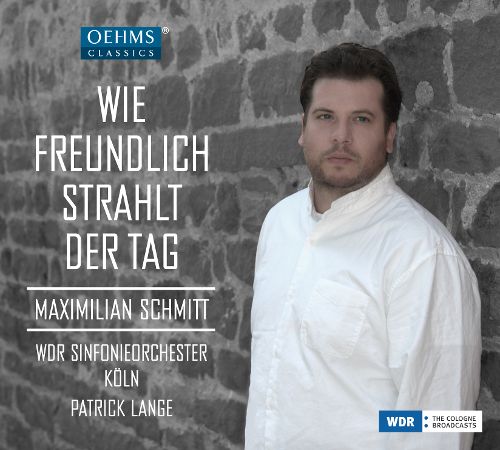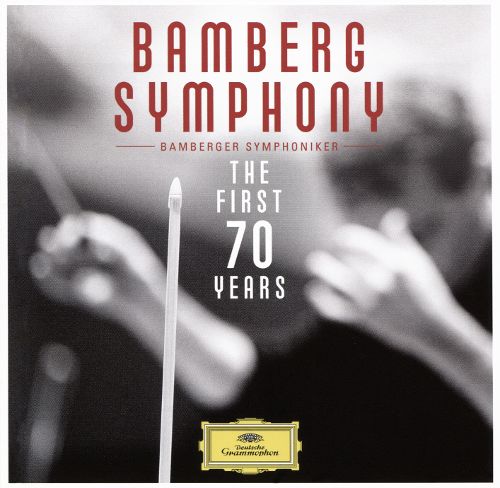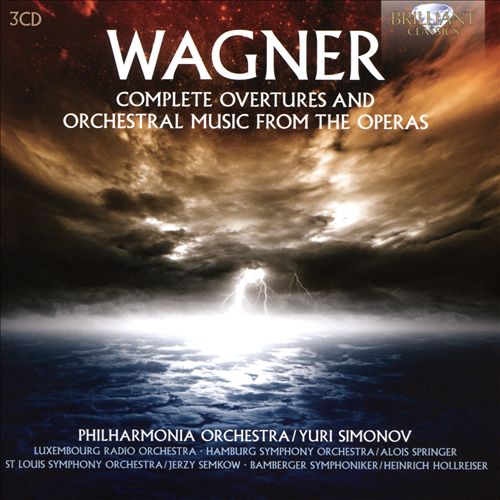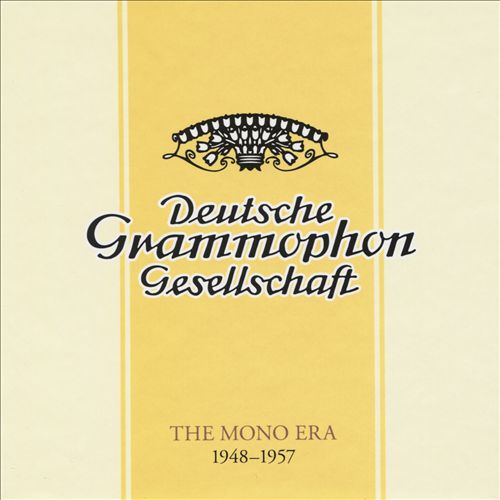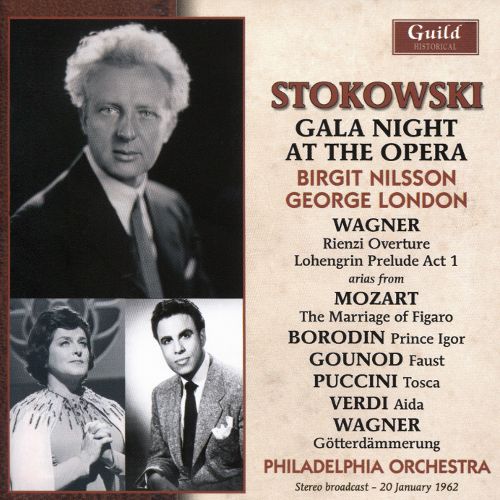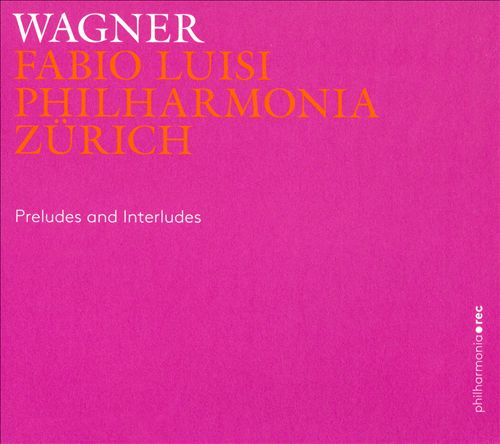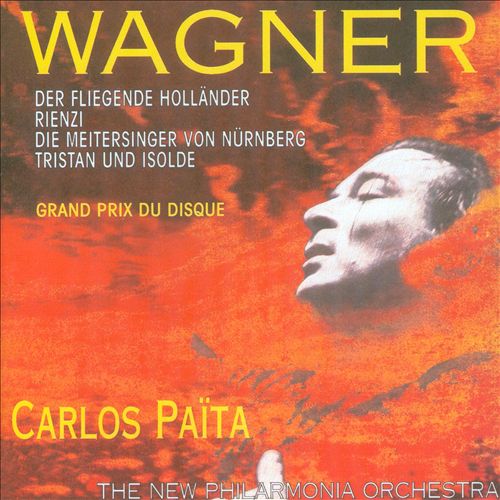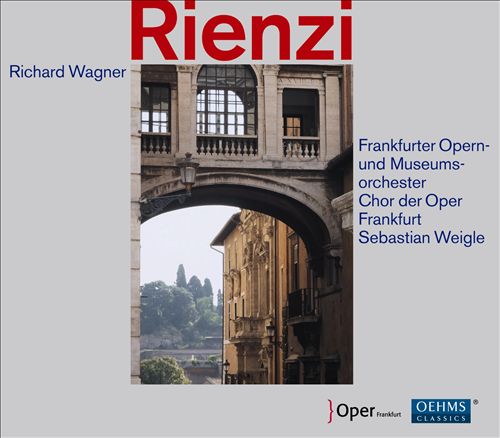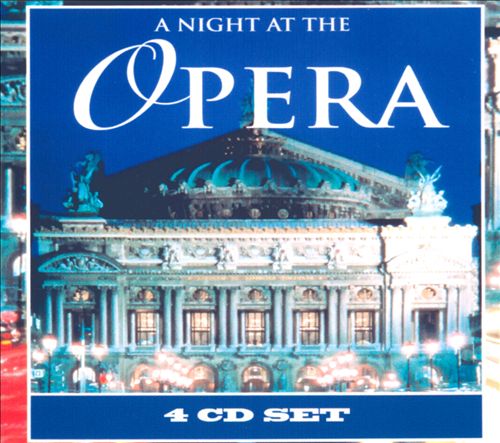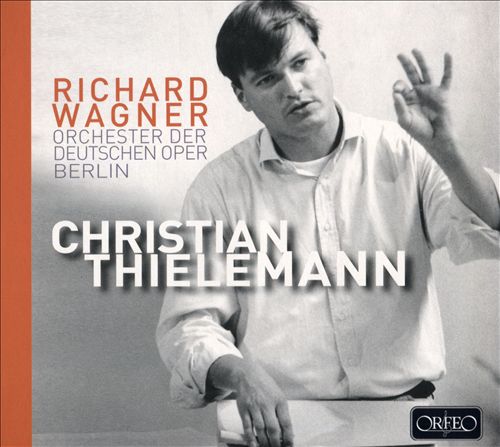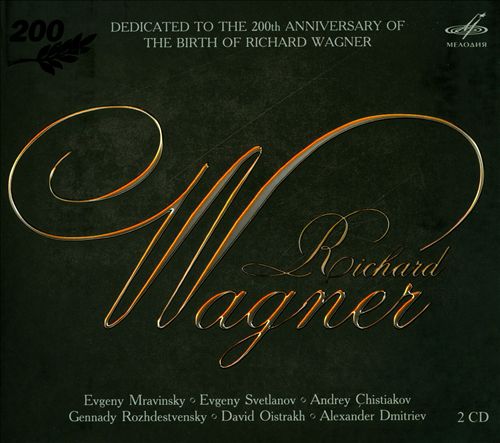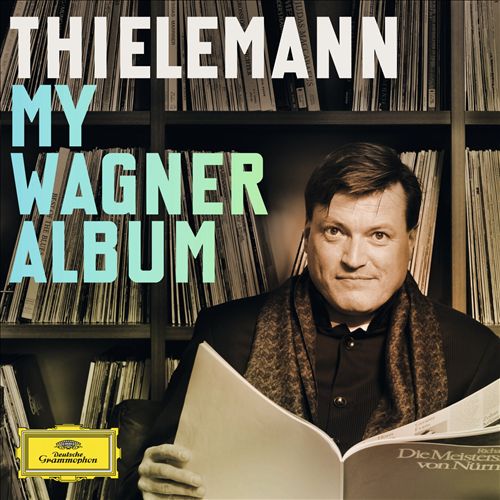Richard Wagner (리하르트 바그너)
Rienzi
100
10,000
1,400
WORK INFO
작곡가: Richard Wagner (리하르트 바그너)작곡년도: 1838 - 1840평균연주: 139:46악장1Overture11:322Act 1 : No. 1, Introduktion: Hier ist's, hier ist's! Frisch auf, ihr Freunde6:373Act 1 : No. 2, O Schwester sprich, was dir geschah5:394Act 1 : No. 3, Er geht und lässt dich meinem Schutz6:105Act 1 : No. 4, Finale: Gegrüsst, gegrüsst7:106Act 2 : No. 5, Introduktion: Jauchzet ihr Täler! Frohlockt ihr Bergel12:577Act 2 : No. 6, Colonna, hörtest du das freche Wort?6:228Act 2 : No. 7, Finale: Erschallet, Feierklänge! - Ihr Romer, es beginnt das Fest!9:059Pantomime (Musik 2), Pantomime und Ballett (Musik 12)38:5510Ballett (Musik 2), A. Tanz der Frauen (Musik 12)null11Festlicher Tanz mit Festhaltung der Allegorie (Musik 11), B. Waffentanz (Musik 12)null12Festliche Tanze (Musik 2), C. Festlicher Tanz (Musik 11)null13Spatere Fassung des Balletts (Musik 9), A. Introduktion - B. Waffenspiel - C. Gladiatoren-Kampf - D. Auftritt der Jungfrauenull14Act 3 : No. 8, Introd. und Ensemble: Vernahmt ihr all' die Kunde schon?4:2415Act 3 : No. 9, Gerechter Gott!5:3816Act 3 : No. 10, Finale: Der Tag ist da, die Stunde naht, Recitative - Schlachthymne: Santo spirito cavaliere!10:5017Spatere Fassung des Schlusses von No. 10 (Musik 7a) - Hort nicht en Rasenden! Den er so wild beklagt, Recitative - Scnull18Act 4 : No. 11, Introduktion, Terzett und Chor: Wer war's7:3619Act 4 : No. 12, Finale: Ihr, nicht beim Feste?6:4720Act 5 : No. 13, Introduktion und Gebet: Allmächtiger Vater6:5221Act 5 : No. 14, Verlässt die Kirche mich6:2422Act 5 : No. 15, Du hier, Irene? Treff' ich dich noch3:5823Act 5 : No. 16, Finale: Herbei! Auf, eilt zu uns!4:3624Act 3 : Nachkomponiertes Vorspiel zum 3. Akt (Musik 6)nullRienzi, der Letzte der Tribunen (Rienzi, the Last of the Tribunes; WWV 49) is an early opera by Richard Wagner in five acts, with the libretto written by the composer after Bulwer-Lytton's novel of the same name (1835). The title is commonly shortened to Rienzi. Written between July 1838 and November 1840, it was first performed at the Hofoper, Dresden, on 20 October 1842, and was the composer's first success. The opera is set in Rome and is based on the life of Cola di Rienzi (1313–1354), a late medieval Italian populist figure who succeeds in outwitting and then defeating the nobles and their followers and in raising the power of the people. Magnanimous at first, he is forced by events to crush the nobles' rebellion against the people's power, but popular opinion changes and even the Church, which had urged him to assert himself, turns against him. In the end the populace burns the Capitol, in which Rienzi and a few adherents have made a last stand.
Rienzi is Wagner's third completed opera, and is mostly written in a grand opera style; depictions of the mob, the liberal ethos associated with the hero and the political intervention of a reactionary clergy recall La vestale, Les Huguenots, and also Fromental Halévy's La Juive. Each act ends with an extended finale ensemble and is replete with solos, duets, trios and crowd scenes. There is also an extended ballet in Act II according to the accepted Grand Opera format. Hans von Bülow was later to joke that "Rienzi is Meyerbeer's best opera".From WIKIPEDIA
RELEASED ALBUMS
-
Legendary RecordingsJune 13, 2025
-
Leopold Stokowski, Vol .2March 14, 2025
-
Great Composers in Words and Music: WagnerMay 10, 2024
-
William Steinberg: Complete Command Classics RecordingsMarch 15, 2024
-
In the ShadowsMarch 1, 2024
-
Bruckner: Symphonies Nos. 0-9; Wagner: Orchestral MusicNovember 10, 2023
-
Klemperer Conducts Wagner: Overtures & PreludesAugust 25, 2023
-
Ave Maria: Sacred AriasApril 7, 2023
-
Plácido Domingo sings WagnerAugust 12, 2022
-
Frederik IX conducts, 1942-1969July 31, 2020
-
Richard Wagner: Siegfried-Idyll - Organ TranscriptionsOctober 18, 2019
-
DG 120: Orchestral 3, 1991-2018October 5, 2018
-
Shining Knight: Wagner, Griffes, BarberJuly 27, 2018
-
Richard Wagner: Das Frühwerk - Die Feen, Das Liebesverbot, RienziJune 8, 2018
-
The Gundula Janowitz EditionJuly 14, 2017
-
Yevgeny Mravinsky Edition, Vol. 2June 2, 2017
-
Hans Rosbaud conducts Richard WagnerMay 12, 2017
-
Carl Maria von Weber: "Oberon" Ouvertüre; Richard Strauss: Ein Heldenleben; Richard Wagner: "Rienzi" OuvertüreSeptember 9, 2016
-
Wie Freundlich Strahlt der TagMay 13, 2016
-
Bamberg Symphony: The First 70 YearsApril 29, 2016
-
Wagner: Complete Overtures and Orchestral Music from the OperasMarch 25, 2016
-
Deutsche Grammophon: The Mono Era 1948-1957March 18, 2016
-
Gala Night at the OperaJanuary 5, 2016
-
Preludes and InterludesFebruary 24, 2015
-
Wagner: Der Fliegende HolländerSeptember 9, 2014
-
Wagner: RienziFebruary 3, 2014
-
A Night at the OperaNovember 5, 2013
-
Richard WagnerSeptember 30, 2013
-
Dedicated to the 200th Anniversary of the Birth of Richard WagnerAugust 13, 2013
-
Thielemann - My Wagner AlbumJuly 15, 2013
FEATURED MOVIES
-
 13:52바그너: 리엔치 Overture06/12/2013Catherine Hall of the HMT-Rostock
13:52바그너: 리엔치 Overture06/12/2013Catherine Hall of the HMT-Rostock -
 13:17바그너: 리엔치 Overture
13:17바그너: 리엔치 Overture -
 14:03바그너: 리엔치 Overture23. September 2012Alte Oper Frankfurt
14:03바그너: 리엔치 Overture23. September 2012Alte Oper Frankfurt -
 09:43바그너: 리엔치 OverturePrinceton UniversityJune 8, 2013
09:43바그너: 리엔치 OverturePrinceton UniversityJune 8, 2013 -
 12:27바그너: 리엔치 Overture
12:27바그너: 리엔치 Overture -
 09:20바그너: 리엔치 OvertureSept. 22, 1998
09:20바그너: 리엔치 OvertureSept. 22, 1998 -
 07:22바그너: 리엔치 Overture part 2
07:22바그너: 리엔치 Overture part 2 -
 05:13바그너: 리엔치 Overture part 1
05:13바그너: 리엔치 Overture part 1
ALBUM MUSIC
WORKS SHOUTS




